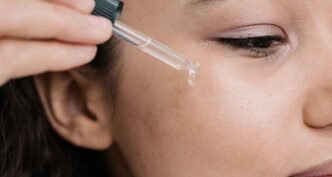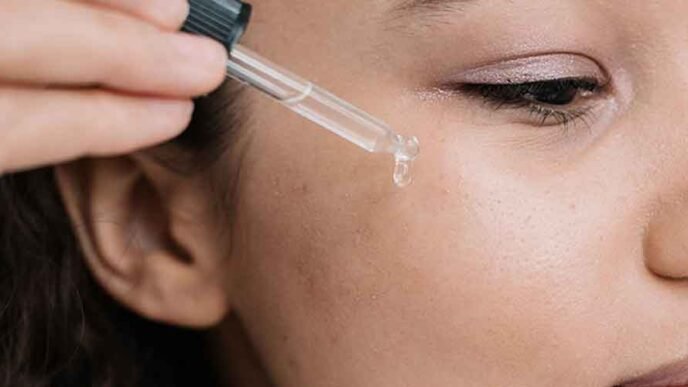Health and beauty products play a vital role in our daily lives, providing numerous advantages such as improving one’s physical appearance and supporting overall well-being. However, it’s crucial to prioritize the safety of these products to prevent any potentially harmful effects on our health. As consumers, it’s important to stay alert and well-informed about the products we use.
When purchasing health and beauty products, it’s imperative to thoroughly understand their ingredients and the potential impact they may have on your health. This comprehensive guide provides detailed steps to ensure the safety and reliability of these products. By following these guidelines, you can make well-informed decisions to safeguard your health and well-being.
Understanding Product Labels
Ensuring the safety of health and beauty products begins with understanding the information provided on product labels. By paying close attention to labels, you can make informed decisions about the products you use. Here are some key points to keep in mind when reading product labels:
- Read and understand product labels: Labels contain essential information about ingredients, usage instructions, and potential allergens.
- Familiarize yourself with harmful ingredients: Know common harmful ingredients and avoid products containing them.
- Check for certifications and approvals: Look for certifications or approvals from regulatory bodies like the FDA to ensure the product has undergone safety testing and meets certain standards.
Researching Ingredients
In the modern era of technology, we have unprecedented access to information, making it easier than ever to conduct thorough research on product ingredients. By leveraging online resources, individuals can effectively look up and gain a comprehensive understanding of unfamiliar ingredients, including their potential effects. It’s important to note that certain ingredients, despite being widely used, may carry potential side effects or may not be suitable for specific skin types or conditions.
Moreover, it’s crucial to pay attention to both consumer reviews and scientific studies when evaluating products. These valuable sources offer firsthand insights into product performance and any adverse reactions that other users may have encountered, allowing for a more informed decision-making process.
Conducting Patch Tests
Before using a new health or beauty product regularly, it’s important to conduct a patch test. To do this, apply a small amount of the product to a discreet area of your skin, such as behind your ear or on your inner forearm, and then wait for 24-48 hours to see if any reaction occurs.
This simple step can help you avoid widespread negative reactions and identify potential allergens. Patch tests are especially crucial for products that contain active ingredients like retinoids, acids, or essential oils, as these components can be more irritating to the skin and may cause adverse reactions in some individuals.
Storing Products Properly
Proper storage of health and beauty products is essential to maintain their efficacy and safety. Store products in a cool, dry place away from direct sunlight, as heat and light can degrade certain ingredients and reduce their effectiveness.
Ensure products are sealed tightly after each use to prevent contamination and spoilage. Following the manufacturer’s storage recommendations can help extend the shelf life of your products and keep them safe for use.
Checking Expiry Dates
It’s important to always check the expiry dates of health and beauty products before use. Using products past their expiration date can reduce their effectiveness and increase the risk of adverse reactions, such as skin irritation or allergic reactions. To keep track of a product’s shelf life, it’s a good idea to mark the date you opened it on the container.
Expired products, especially those with natural ingredients, can harbor bacteria and cause infections or skin irritations. It’s crucial to discard any products that have changed in color, texture, or smell, as these are signs that the product may have become contaminated and could be harmful to use.
Consulting Professionals
If you notice any negative reactions or have any worries about the safety of a product, it’s important to seek advice from a healthcare professional or a dermatologist. They are best equipped to offer personalized guidance and recommend treatment options that are tailored to your individual requirements and skin type.
An Oklahoma City personal injury lawyer can offer guidance and representation for legal concerns related to unsafe products. They can help you navigate the complexities of product liability claims and seek compensation for any harm caused.
Being Wary of Counterfeit Products
Counterfeit health and beauty products are a growing concern, especially with the rise of online shopping. These fake products can contain harmful ingredients and are often sold at a fraction of the price of genuine products. Always purchase from reputable retailers and check for signs of authenticity.
If a deal seems too good to be true, it probably is. Investing in genuine, high-quality products is worth the extra cost to ensure your safety and well-being.
Staying Informed About Recalls
Stay updated on product recalls and safety alerts issued by regulatory agencies. These alerts can provide important information about unsafe or defective products. Consider subscribing to newsletters or following relevant social media accounts to receive timely updates.
Recalls often include instructions on returning or disposing of the unsafe product. Following these guidelines is important to avoid any potential risks associated with continued use.
Avoiding Harmful Trends and DIY Solutions
The internet is filled with an overwhelming number of beauty trends and do-it-yourself (DIY) solutions that promise incredible results. However, it’s essential to approach these trends with a critical eye and prioritize your health and safety. Many of these trends lack scientific backing and could potentially have adverse effects on your skin and overall well-being.
When considering trying out a DIY beauty treatment, it’s crucial to research the ingredients thoroughly. Some homemade treatments may include components that can lead to skin irritation or allergic reactions. Seeking guidance from a dermatologist before experimenting with new treatments can help prevent potential harm and ensure that the products are suitable for your skin type.
Moreover, it’s advisable to rely on products and treatments recommended by skincare professionals. This approach can significantly reduce the risk of adverse reactions and enhance the likelihood of achieving the desired results. Prioritizing your safety and well-being when it comes to skincare is essential for maintaining healthy and radiant skin.












